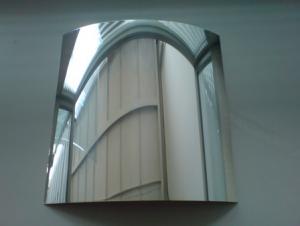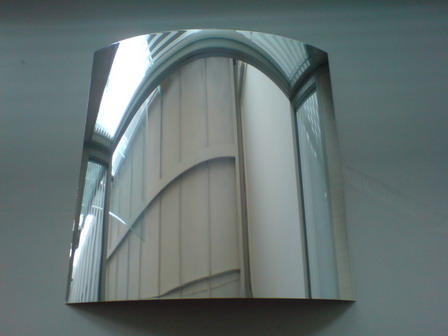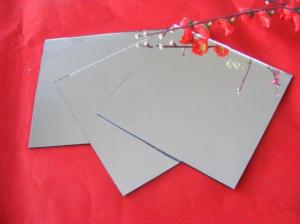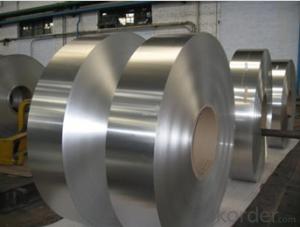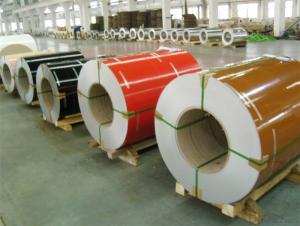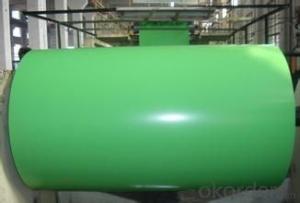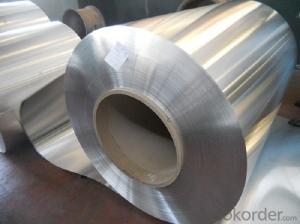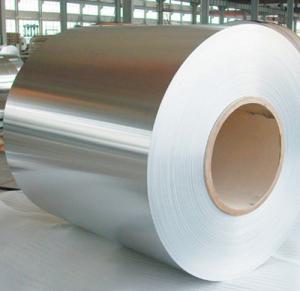All Aluminum Coil - Mirror Aluminum Coil
- Loading Port:
- China Main Port
- Payment Terms:
- TT OR LC
- Min Order Qty:
- -
- Supply Capability:
- -
OKorder Service Pledge
OKorder Financial Service
You Might Also Like
Packaging & Delivery
| Packaging Detail: | Standard Export Packaging or According to Customers' Requirements |
| Delivery Detail: | 30 days |
Specifications
Aluminum mirror sheet
1.Provide all kinds of aluminum mirror sheet
2.High quality
3.Reasonable prices
4.Great services
We provide all kinds of aluminum mirror plate!
We can supply ALplate/coil/foil of more than 10 alloy bands including 1xxx, 3xxx, 5xxx, 6xxx and 8xxx
series. The main products include aluminum sheet, coil, foil, air-container foil, cable foil, electronic capacitor foil, blister
foil, flexible packaging foil, CTP stock, litho stock, cap stock, tread plate, embossed coil, mirror panels, cans cover
materials, aerospace aluminum, mold aluminum materials, etc. at the same time, we process a variety of products
according to requirements of different customers.
- Q: What are the safety measures one should take when using aluminum coils indoors?
- <p>When using aluminum coils indoors, it's crucial to ensure proper ventilation to prevent the buildup of gases that can be harmful if inhaled in large quantities. Always follow the manufacturer's guidelines for installation and operation. Keep the coils away from flammable materials and ensure they are securely fastened to prevent tipping or falling. Regularly inspect the coils for any signs of damage or wear, and replace them if necessary. Never use aluminum coils in enclosed spaces without proper exhaust systems, and always have a fire extinguisher nearby in case of emergencies.</p>
- Q: How are aluminum coils protected against chemical exposure?
- Various methods are employed to safeguard aluminum coils from chemical exposure. One prevalent approach involves applying a protective coating or finish to the coil's surface. This coating serves as a barrier, shielding the aluminum from potentially harmful chemicals and preventing direct contact and corrosion. Another technique is anodization, whereby the aluminum surface is treated electrolytically to create a layer of oxide. This oxide layer not only provides excellent resistance against chemical exposure but also enhances the overall durability of the coils. Anodized aluminum coils find extensive use in industries like construction, automotive, and aerospace, where chemical resistance is of utmost importance. Additionally, aluminum coils can be safeguarded by employing specific alloys designed to withstand chemical corrosion. These alloys incorporate additional elements, such as copper or magnesium, which bolster the aluminum's resistance to chemical attack. By carefully selecting the appropriate alloy composition, manufacturers can ensure that the aluminum coils are better equipped to endure chemical exposure. In summary, protecting aluminum coils from chemical exposure necessitates a combination of protective coatings, anodization, and the use of corrosion-resistant alloys. These measures play a vital role in prolonging the lifespan of the coils and maintaining their performance even in harsh chemical environments.
- Q: What are the different coil recoiling options available for aluminum coils?
- Depending on the specific requirements and desired outcomes, there are various options available for recoiling aluminum coils. One possibility is to use the oscillate recoiling method, which involves winding the aluminum coil in a zigzag pattern. This technique can help reduce coil set and improve flatness, making it ideal for applications where a flat, smooth surface is crucial. Another option is the traverse winding method, where the aluminum coil is wound back and forth in a controlled manner. This technique helps evenly distribute tension across the coil, minimizing the risk of coil breaks and ensuring consistent performance. Additionally, there are choices for coil slitting and rewinding. Slitting involves cutting the aluminum coil into narrower strips, which can be rewound into smaller coils. This option is commonly employed when smaller coil sizes are necessary for specific applications. Moreover, some recoiling options include coil rewinding with tension control systems. These systems ensure that the tension applied during rewinding is controlled and consistent, preventing overstretching or deformation of the aluminum coil. In conclusion, the selection of recoiling options for aluminum coils depends on factors such as desired surface finish, coil size requirements, and specific application needs. Manufacturers and processors of aluminum coils can offer guidance and expertise in selecting the most suitable recoiling option based on these considerations.
- Q: Can aluminum coils be used in refrigeration systems?
- Yes, aluminum coils can be used in refrigeration systems. Aluminum is a popular choice for coil materials in refrigeration systems due to its excellent heat transfer properties and corrosion resistance. Aluminum coils are lightweight, durable, and efficient in transferring heat, making them suitable for use in various refrigeration applications such as air conditioning units, refrigerators, and freezers. Additionally, aluminum coils are easier to shape and install compared to other materials, making them a preferred choice for manufacturers.
- Q: What are the standard widths of aluminum coils?
- The specific industry and application play a role in determining the varying standard widths of aluminum coils. Generally, aluminum coils come in widths ranging from 12 inches (30.48 cm) to 60 inches (152.4 cm). These widely accepted widths are commonly utilized in construction, transportation, and manufacturing sectors. It is worth mentioning that customized widths are also readily accessible to meet specific project needs in the market.
- Q: How are aluminum coils coated to enhance their durability?
- Aluminum coils can be enhanced in terms of durability through various methods of coating. One popular approach is by applying a protective coating, such as polyester or acrylic resin, onto the coils using a technique known as coil coating. This can be achieved through roll coating or spray coating. The purpose of the coating is to create a barrier between the aluminum and external elements like moisture, UV rays, chemicals, and abrasion. By doing so, it prevents corrosion, oxidation, and damage caused by exposure to the environment. The choice of coating type and its thickness can be adjusted according to the desired level of durability and the specific purpose of the aluminum coil. Apart from protective coatings, additional treatments can be applied to aluminum coils to further enhance their durability. These treatments may include pre-treatment processes like cleaning, etching, and chromating, which improve the adhesion of the coating to the aluminum surface. Other treatments may involve the application of primers or topcoats to offer extra protection and enhance the appearance of the coil. Overall, the process of coating aluminum coils enhances their durability by providing a protective layer that can withstand harsh environmental conditions, prolong their lifespan, and preserve their appealing appearance.
- Q: How do aluminum coils compare to other types of metal coils?
- When comparing aluminum coils to other types of metal coils, there are both advantages and disadvantages. Firstly, aluminum coils are lightweight, making them easier to handle and transport than metals like copper or steel. This lightweight characteristic also contributes to their cost-effectiveness in terms of shipping and installation. Moreover, aluminum coils are highly resistant to corrosion, making them suitable for use in humid or corrosive environments, such as outdoor air conditioning systems or refrigeration units. Additionally, aluminum coils have excellent thermal conductivity, allowing for efficient heat transfer. This makes them highly efficient in applications like HVAC systems or automotive radiators. However, there are also drawbacks to using aluminum coils. Compared to copper coils, aluminum coils have lower electrical conductivity, which can lead to higher energy consumption and reduced efficiency in certain applications. Additionally, aluminum is a softer metal than copper or steel, making aluminum coils more susceptible to damage or bending. To summarize, aluminum coils offer advantages such as lightweight, corrosion resistance, and thermal conductivity. However, they may have lower electrical conductivity and be more prone to damage compared to other types of metal coils. Ultimately, the choice between aluminum coils and other types of metal coils depends on the specific requirements of the application.
- Q: I am looking for a place where I can have my aluminium channels anodized in Erode.
- KSR Agency Products Services Aluminum AnodisingAluminum ExtrusionsArchitectural GlassesBus BarComposite Panels Elevation Glass FittingsFalse CeilingHeat Sink Sections About Us KSR Agency is well-known, veteran-owned business enterprise. Our company is a promising manufacturer and supplier of wide range of Aluminum Extrusion channels and Anodizing Aluminum that includes the following products o Glass Fittings for Elevation o Bus Bars o Heat Sink Sections o Aluminum Extrusions o Architectural Glasses o False ceiling o Partitions o Composite Panels Our Anodizing methodologies: o Type I - Chromic Acid Anodize o Type II - Sulphuric Acid Anodize o Type III - Hard Anodize o Class 1 - Non-dyed o Class 2 - Dyed Our range of products has huge demand and widely accepted by many people all across for their outstanding features and are available in various patterns, designs, sizes, shapes. We use the best grade raw material and advanced methods of production in the process of manufacturing these products. Our products meet the international standards in quality that assures excellent performance in usage and customized as per the clients' specification and necessity. We deliver the orders within a stipulated time frame. Contact Details KSR Agency No. 45, Mudali Thottam, Bharathi Nagar, Sulai, Chittode Road, Erode - 638004, Tamil Nadu, India Mr. Sendhil Kumar +(91)-9739956109 Mr. Rajendran +(91)-9842876614
- Q: This question asks for methods to prevent rusting on aluminum coils during storage and transportation.
- <p>To prevent rusting on aluminum coils during storage and transportation, ensure that the coils are clean and dry before storage. Use a protective coating or wrapping to shield them from moisture and contaminants. Store the coils in a cool, dry place away from direct sunlight and corrosive substances. Avoid stacking them where they may come into contact with acidic materials. During transportation, secure the coils properly to prevent movement that could lead to scratches or damage. Use moisture-resistant covers to protect them from the elements. Regularly inspect the coils for signs of corrosion and address any issues promptly.</p>
- Q: What are the weight considerations when using aluminum coils?
- When incorporating aluminum coils, there are various factors to consider regarding weight. To begin with, aluminum coils generally possess a lighter weight in comparison to other metals, such as steel. This characteristic makes them a favored choice in industries prioritizing weight reduction, like automotive manufacturing or aerospace applications. The lightweight nature of aluminum coils leads to enhanced fuel efficiency in vehicles and increased payload capacity in airplanes. Furthermore, it is important to take into account the weight of the aluminum coil itself. Depending on the specific usage, the coil's weight may need to fall within certain limits to ensure proper functionality and structural integrity. For instance, in HVAC systems, the weight of the aluminum coil must be appropriate for secure mounting and capable of withstanding vibrations or pressure changes. Moreover, the weight of the aluminum coil can impact transportation and installation. Lighter coils are simpler to handle, transport, and install, thereby reducing the time and effort required for these processes. This advantage can be particularly valuable in construction projects that involve a large quantity of aluminum coils. Additionally, it is crucial to consider the weight-bearing capacity of the structures or equipment that will support or utilize the aluminum coils. The combined weight of the coils, along with any additional components or materials, should not exceed the load capacity of the system to prevent structural failure or safety hazards. Lastly, the weight of aluminum coils can influence cost considerations. Since the price of aluminum is typically based on weight, lighter coils may prove to be more cost-effective when compared to heavier alternatives. However, it is important to strike a balance between weight reduction and meeting the required performance and strength specifications. In conclusion, weight considerations when using aluminum coils encompass various factors, including the overall benefits of weight reduction, the weight of the coil itself, ease of transportation and installation, load-bearing capacity, and cost implications. Taking these considerations into account ensures the successful and efficient utilization of aluminum coils in diverse industries and applications.
Send your message to us
All Aluminum Coil - Mirror Aluminum Coil
- Loading Port:
- China Main Port
- Payment Terms:
- TT OR LC
- Min Order Qty:
- -
- Supply Capability:
- -
OKorder Service Pledge
OKorder Financial Service
Similar products
Hot products
Hot Searches
Related keywords
